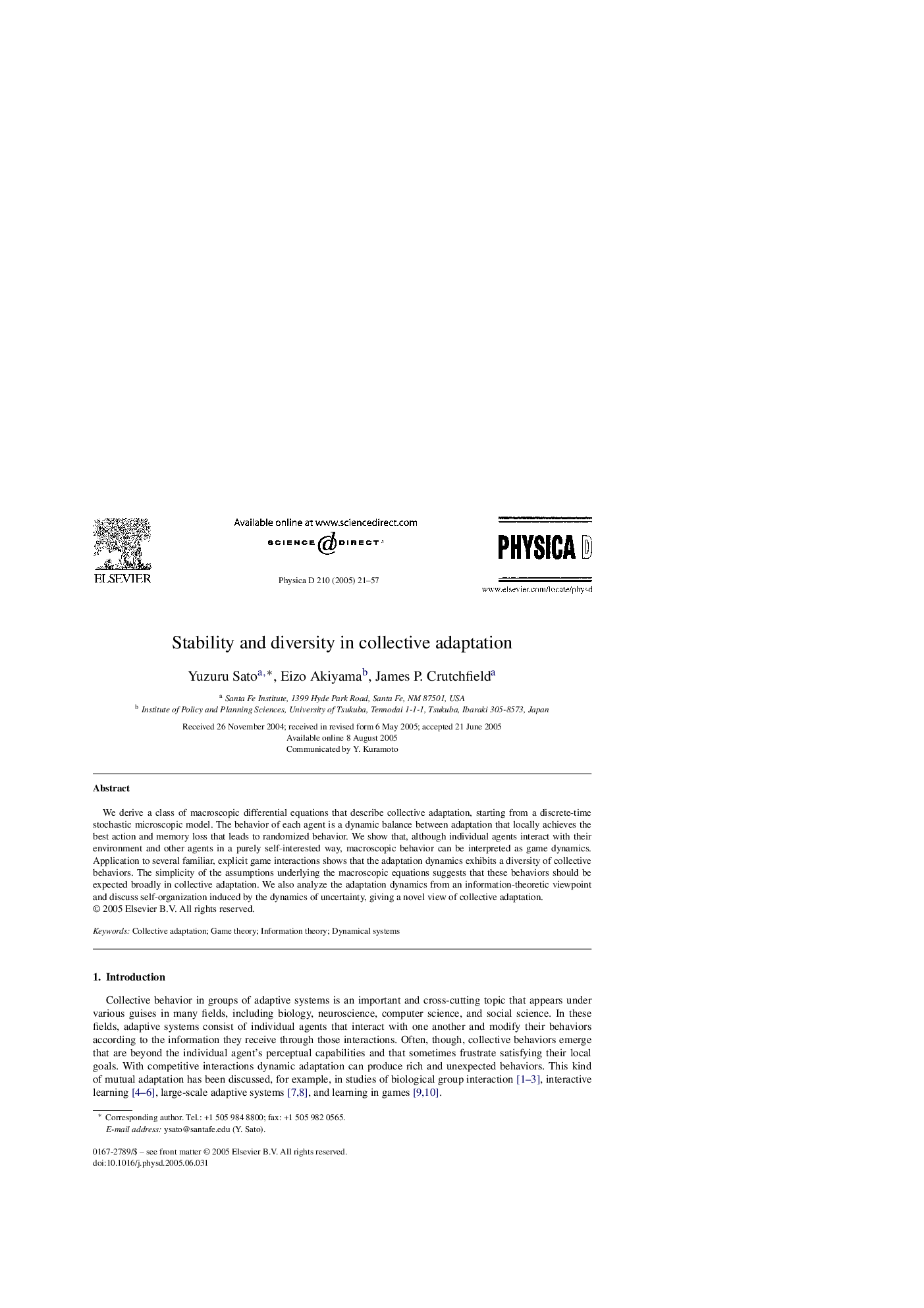| Article ID | Journal | Published Year | Pages | File Type |
|---|---|---|---|---|
| 9877542 | Physica D: Nonlinear Phenomena | 2005 | 37 Pages |
Abstract
We derive a class of macroscopic differential equations that describe collective adaptation, starting from a discrete-time stochastic microscopic model. The behavior of each agent is a dynamic balance between adaptation that locally achieves the best action and memory loss that leads to randomized behavior. We show that, although individual agents interact with their environment and other agents in a purely self-interested way, macroscopic behavior can be interpreted as game dynamics. Application to several familiar, explicit game interactions shows that the adaptation dynamics exhibits a diversity of collective behaviors. The simplicity of the assumptions underlying the macroscopic equations suggests that these behaviors should be expected broadly in collective adaptation. We also analyze the adaptation dynamics from an information-theoretic viewpoint and discuss self-organization induced by the dynamics of uncertainty, giving a novel view of collective adaptation.
Related Topics
Physical Sciences and Engineering
Mathematics
Applied Mathematics
Authors
Yuzuru Sato, Eizo Akiyama, James P. Crutchfield,
